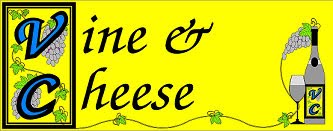Our last post (Part 1) came about because I fell for the "drinking wine is as good as exercise" study that was recently widely publicized. The study actually maintained what most of these kinds of studies conclude, that moderate alcohol consumption seems to improve one's health. Contrary to the headlines, if anything, the study confirmed that exercise was much better for you health-wise than drinking wine. The popular media gurus just twisted the findings a tad to catch the consumer interest.
So after reading several more articles citing similar studies, I now believe in the health benefits of moderate wine consumption (1-2 glasses per day). I also believe the intentions of some writers is not so much to inform as to sell magazines. Some of what I read, in fact, could have passed for promotional literature from the alcoholic beverage industry.
I did learn some new and interesting facts though. In 1904 the Journal of the American Medical Association published an article citing increased longevity in a study of moderate drinkers. Oddly enough, today the American Heart Association still does not recommend wine or any alcoholic beverage intake but maybe that's not so odd considering the downside of alcohol abuse.
Cardiovascular disease, the number one killer in America, usually has its onset around age forty-five, which is about the time when it is believed moderate alcohol intake begins to measurably improve health. Lifestyle changes like weight loss through exercise and diet and the introduction of blood pressure and cholesterol medication complicate the bottom line on alcohol benefits since studies can't realistically control for every lifestyle component. With exercise being recognized as the most important healthful activity, red wine with meals may be second since it not only aids digestion but moderates food intake.
As we said in the last post, resveratrol in red wine acts as an anti-oxidant, mimicking exercise by increasing HDL (good cholesterol) and removing fatty deposits in blood vessels caused by LDL (bad cholesterol). Polyphenols, like the tannins in red wine, then add more protection to the linings of vessels to prevent or retard future fat cell growth.
This Friday, March 20th after 5pm, we'll be tasting a lineup of mostly domestic reds including the new Out Kaste Zinfandel blend from Steele and highlighted by Orin Swift's D66 French centerpiece. Maso Canali Pinot Grigio will be our white wine headliner. We ask for a $10 fee to taste or a $50 per person minimum purchase. Please join us.
Tuesday, March 17, 2015
Subscribe to:
Post Comments (Atom)




No comments:
Post a Comment